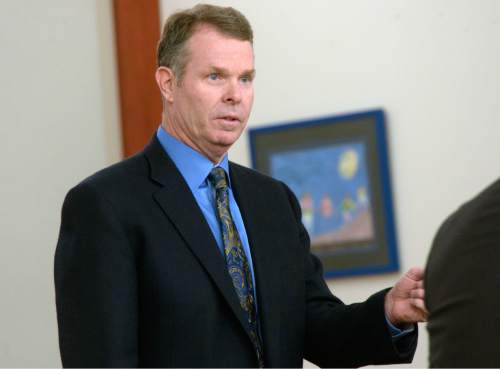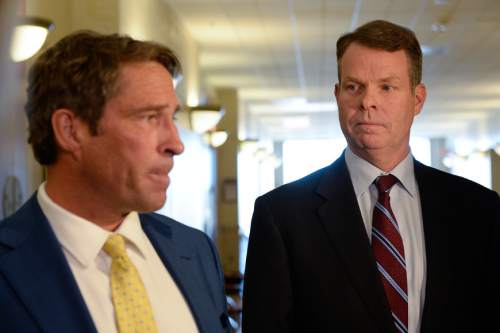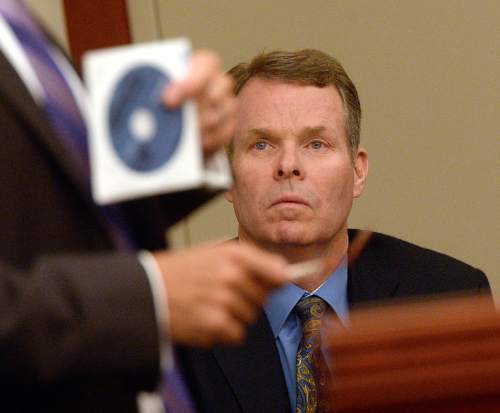This is an archived article that was published on sltrib.com in 2016, and information in the article may be outdated. It is provided only for personal research purposes and may not be reprinted.
John Swallow can't mount a defense to the charges filed against him because court papers offer a collection of "politically unsavory allegations," not specific details about the former Utah attorney general's alleged criminal misconduct.
That's the reason a state judge should grant Swallow a second chance for a preliminary hearing, his defense attorney, Scott C. Williams, argued in 3rd District Court on Tuesday.
Swallow waived his original preliminary hearing in June 2015, when he had a different attorney and didn't understand the impact of that decision, Williams says.
Hired last fall, Williams now wants the court to vacate that waiver and hold the hearing so Swallow can hear and challenge the evidence prosecutors relied on to bring the case.
Williams also wants the court to order Salt Lake County prosecutors to produce a "bill of particulars," a more detailed probable cause statement of Swallow's alleged crimes.
Judge Elizabeth Hruby-Mills heard oral arguments on those issues Tuesday and said she hoped to issue rulings within a few days.
Swallow, who was elected as a Republican in 2012, has pleaded not guilty to 14 felony misdemeanors — including counts of racketeering, bribery, evidence tampering and misuse of public funds — in connection with allegation of bribery and corruption in the attorney general's office.
A trial is set for 2017, and, if convicted, Swallow would face a maximum punishment of 30 years in prison.
A simpler set of allegations might not warrant granting Swallow's request, Williams said, but the case is "different than almost anything that has come before the court," and a hearing would ensure his fundamental rights to due process and notice.
Prosecutors argued against a hearing and said the court shouldn't buy the argument that Swallow — "who was the state's top lawyer … the Utah attorney general" — waived the hearing without understanding the gravity of the decision.
In fact, a transcript of the waived 2015 hearing shows just the opposite, Deputy Salt Lake County District Attorney Chou Chou Collins said: "I don't think there is any question at all that the defendant did not understand."
Williams also said a preliminary hearing might serve to streamline the case — a judge could decide whether prosecutors have enough evidence to warrant a trial on all of the charges — and shorten the length of a trial.
In the absence of a hearing, however, Williams said the court should grant Swallow's request for a bill of particulars so the defendant has a specific understanding about his alleged violations of state law.
Currently, Williams argued, court papers hint at the violations without specificity. For example, the charge of "false or inconsistent statements" alleges that Swallow lied in an interview with the FBI, but it's unclear where he did so in the 327 pages of its transcript, Williams said, or what Swallow may have lied about.
"How could someone possibly know where to find their defense?" Williams asked the court. "Nothing gives us the specifics. … I'd know in six questions in a [preliminary hearing], but right now I don't."
Prosecutors say they've already answered those questions in the charges and in subsequent documents filed in response to petitions from Williams. Those documents, in particular, give a further description of the facts of the former officeholder's case and narrows the allegations, Deputy District Attorney Fred Burmester said.
"The pleadings are sufficient," he said, "under both federal and state constitutions."







